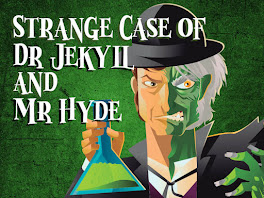In a good romance change should always centers on the hero and heroine. They are the ones who react, adapt, grow, learn from the experiences around them. In real life, of course, everyone else would be reacting, adapting, growing, learning, but one of the conventions (not conveniences) of fiction is that we watch the world through a few eyes, not through the experience of humanity as a mass (no, not even Tolstoy could do that).
This business of change, however, brings us to another romantic convenience: instant change. In romances, the change is often a moment of recognition: the hero or heroine recognizes his/her true feelings. Darcy undergoes this when Elizabeth taunts him, saying that a "gentleman" would not have proposed to her by criticizing her family.
However, Darcy DOES NOT have that moment of revelation, and then, hey, presto, everything is okay. In fact, Darcy writes his "angry" letter to Elizabeth first. (Darcy later apologizes to Elizabeth for the letter, but she responds that although it started out angryish, it ended graciously). His pride is hurt. He has to process his reaction to Elizabeth before he can admit that he behaved badly.
 |
| One minute--one thing; the next--something else. |
However, that's my personal philosophical reaction. Instant revelation also bothers me as a writer and a reader. Based on my brother Eugene's comments concerning Mormon romance novels (see his review of The Last Promise), this business of the instant fix/snap-judgment is not just an evangelical problem. I doubt it is just a religious problem. I would guess that it comes down mostly to writing choices. It's HARD to be constructive. It's HARD to work out problems intelligently. It's HARD to set up change and then pay it off effectively. That's why we Janeites worship Jane Austen. She went for the happy ending, but she didn't do it easily!
To be continued...
